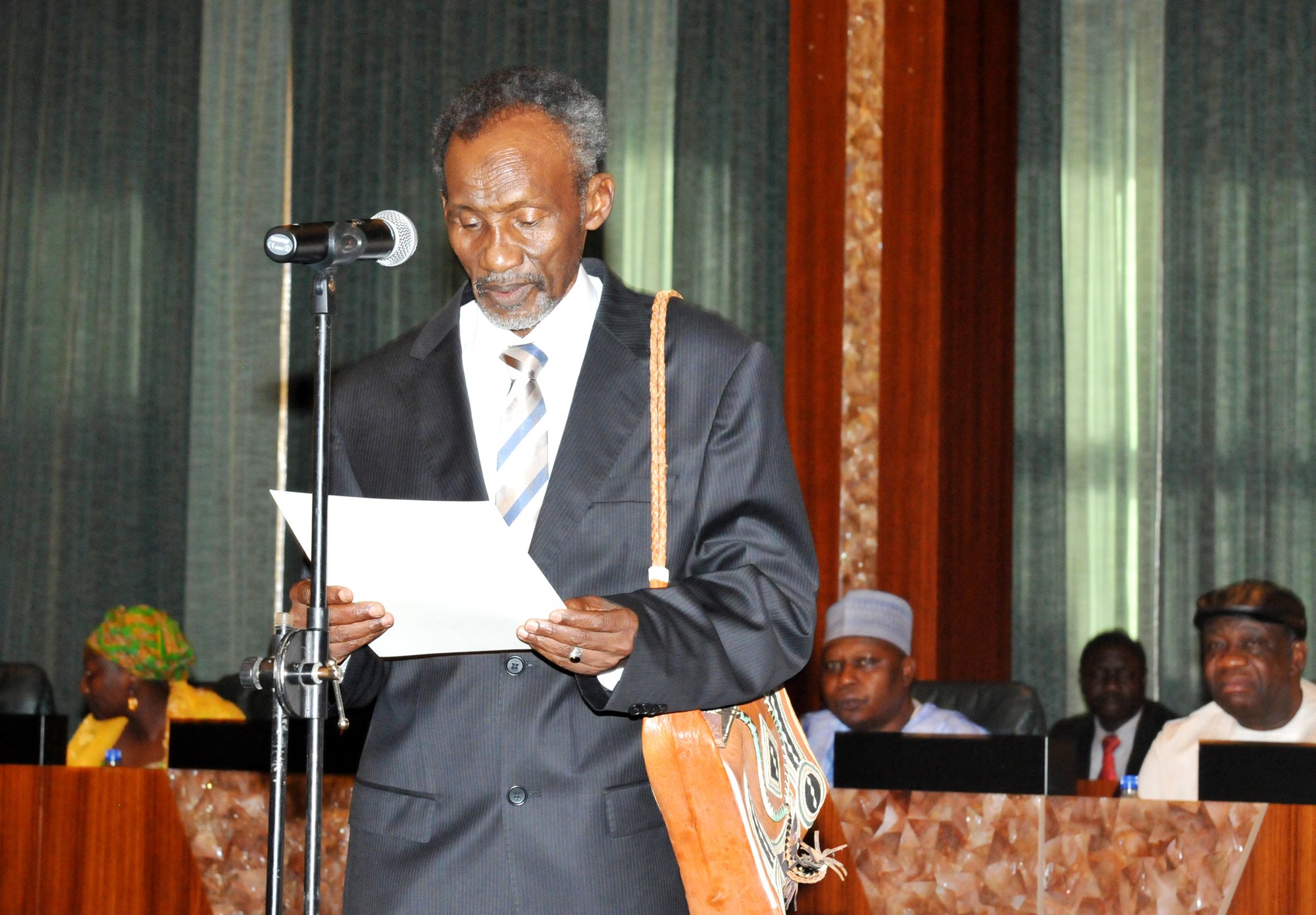The National Judicial Council, NJC, on Thursday, November 3, 2016 suspended the seven judges who were targeted by the politically motivated midnight raids on their homes by Nigeria’s secret police, the State Security Services, SSS, also called DSS.
The NJC, headed by the Mahmud Mohammed, the Chief Justice of Nigeria, rising from a two-day emergency meeting ordered that the justices step down pending “the outcome of the investigation” by the DSS on alleged corruption.
RELATED: Crackdown On Judges: NJC Releases Damning Statement On Buhari Regime, DSS [MUST READ]
This decision differs from the original stance of the NJC which was documented in a statement soon after the illegal raid on the homes of the justices. Some of the justices have documented their experiences at the hands of agents of the secret police.
Justices Sylvester Ngwuta and Inyang Okoro, two of the Supreme Court justices named Rotimi Amaechi, the minister of transporation, as one who used the name of President Muhammadu Buhari in trying to induce the justices to pervert the law in election petition matters concerning Rivers State, Akwa Ibom State, and Abia State.
ALSO READ: EXCLUSIVE: White Paper Indicting Rotimi Amaechi For N96 Billion Corruption [DOCUMENT]
In a statement by Soji Oye, the acting director of information of the NJC, announced the decision of the council and also disclosed that a Transparency and Anti-Corruption Policy Implementation Committee had been constituted to be headed by a retired justice of the Supreme Court.
“The National Judicial Council under the chairmanship of the Chief Justice of Nigeria, Hon. Justice Mahmud Mohammed, at its 79th meeting held on November 1 and 2, 2016, commenced implementation of specific aspects of the National Judicial Policy which came into force in April 2016 and was launched on Monday 24th October, 2016,” the statement said.
“During the Meeting, Council set-up a Transparency and Anti-Corruption Policy Implementation Committee as follows: Hon Justice E. O. Ayoola, CON (Retd Justice of the Supreme Court) – Chairman.
“Hon Justice Kashim Zannah, Chief Judge of Borno State – member; A. B. Mahmoud, SAN, President Nigerian Bar Association – member.
“Section 6 of the National Judicial Policy aims at putting in place multi-faceted strategies and guidelines that will ensure transparency and eliminate corruption in the Judiciary.
“It seeks, among other measures, to provide a platform and opportunity to citizens who profess factual and credible knowledge of information on the nature and modalities of corruption in the judicial system to ventilate such.
“Council also decided that Judicial Officers shall not be standing trial for alleged corruption related offences and be performing judicial functions at the same time.
“Council, however, decided that it will ensure that Judicial Officers being investigated for alleged high profile criminal offences do not perform judicial functions until their cases are concluded”.
The NJC had earlier described “as unacceptable”, NBA’s call for all the serving judges affected by the “sting operation” the Department of State Services, DSS, conducted between October 7 and 8, to step down pending their trial.
The Council stated at that time that it would neither suspend nor ask any of the accused Judges to proceed on compulsory leave as recommended by the NBA, insisting that such action would be contrary to the provisions of Section 158 of the 1999 Constitution of the Federal Republic of Nigeria, as amended.
Aside from two Justices of the Supreme Court – Inyang Okoro and Sylvester Ngwuta, others to step down from the bench are Justices Adeniyi Ademola and Muazu Pindiga of Abuja and Gombe Divisions of the Federal High Court, respectively.
The NJC had earlier sacked the former chief judge of Enugu State, Justice I. A. Umezulike, the presiding justice of the Court of Appeal, Ilorin Division, Justice Mohammed Tsamiya; and a judge of Kano State High Court, Justice Kabiru Auta.
Additional reporting by Vanguard







